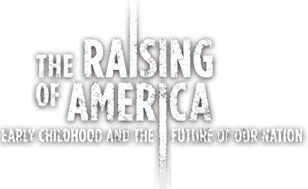Trailer - Wounded Places
to watch purchased videos
Add to Your Favorites
Remove from Your Favorites
Traveling to Philadelphia and Oakland, this episode chronicles the stories of children shaken by violence and adversity and asks not “What's wrong with you?” but “What happened to you?” and “How can traumatized children and neighborhoods heal?”
PTSD isn’t only about combat vets and survivors of natural disasters. Too many of our children, especially children of color living in neighborhoods of concentrated poverty, show the effects of unrelenting structural racism, street violence, domestic instability and other adversities. And their symptoms look a lot like post-traumatic stress disorder. Except for many, there is no “post.”
Wounded Places travels to Philadelphia and Oakland where a long history of disinvestment and racial exclusion have ravaged entire neighborhoods and exposed children to multiple adverse childhood experiences (or ACEs). We meet families and some remarkable young people who have been traumatized not just by shootings, but fear, uncertainty and a sense of futurelessness.
As Stanford physician Victor Carrion explains, “If we are crossing the street and we see that a truck is coming at us, we can manage that situation, get scared, jump, and move quickly. Unfortunately, many children in our society feel like a truck is coming at them all day long, for more days than not, and this really takes a toll.”
We watch as Caheri Gutéirrez, Antonio Carter, Javier Arango and other young people wrestle with their hyper-vigilance, sudden rages, nightmares, inability to trust and difficulty concentrating in school. Now they themselves are counseling others, helping them to “own” their trauma. Yet police, teachers, the media, and even social service workers too often make things worse, pegging traumatized children not as injured and in need of healing but as “bad” or “impaired.”
For instance, in 2012 in Connecticut alone, 2,000 children aged six years and under—overwhelmingly black and Latino—were suspended from kindergarten and preschool, dramatically increasing their risk of eventually dropping out of school and being sent to prison.
We also meet doctors, community organizers and peer counselors blazing a new model of trauma-informed care, including MacArthur Fellow John Rich, MD, emergency room doctor Ted Corbin, MD, Dr. Sandra Bloom, the founder of the Sanctuary Model, and Youth UpRising! director Olis Simmons.
Rather than ask, “What’s wrong with you?” they ask, “What happened to you?” and “How can traumatized individuals and neighborhoods heal?” The implications of this simple shift can be transformative—for those suffering from trauma, for neighborhoods and even for the providers themselves.


